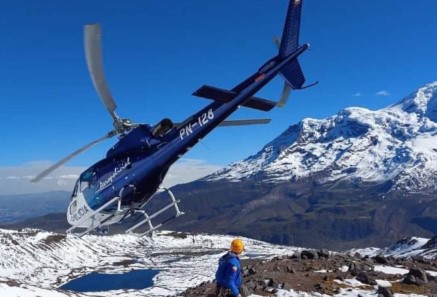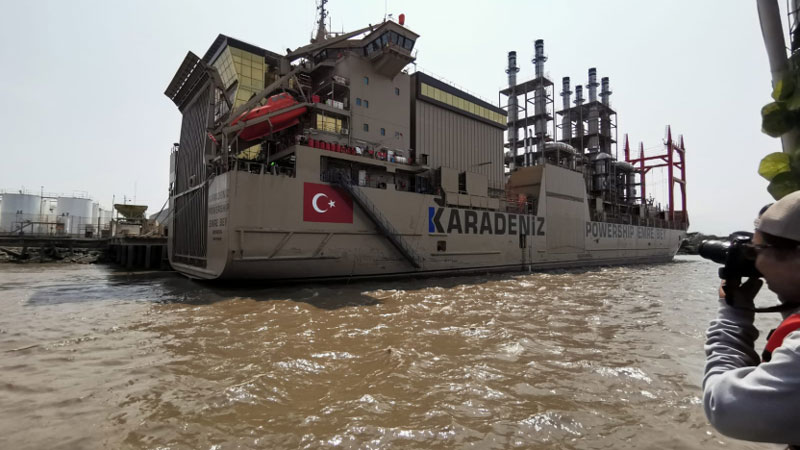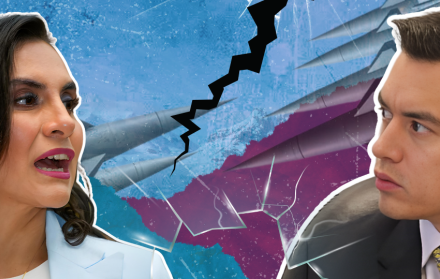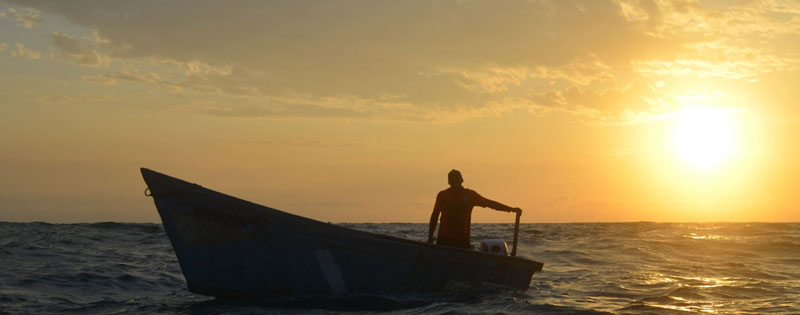Gov’t announces new power purchases; Noboa’s popularity ticks up; Ecuador’s glaciers are melting
Energy Minister Antonio Goncalves said Tuesday that the government is pursuing “an aggressive plan” to purchase electricity and avoid the power blackouts that plagued the country in late 2023 and early 2024. “We are reviewing  proposals from 55 companies for additional electric generation and will select contractors very soon,” he said. “As part of the plan, we are adding two more power generation barges, one of which is already en route.”
proposals from 55 companies for additional electric generation and will select contractors very soon,” he said. “As part of the plan, we are adding two more power generation barges, one of which is already en route.”
“These efforts will allow the country to face the energy emergency and supply electricity during the periods when hydro power generation is low,” Goncalves. He added that reservoir levels at the country’s largest hydroelectric plants on the Rios Paute and Coca are “sufficient in the short term” although they are dropping due to dry season conditions.

United Nations researchers say Ecuador’s glaciers and melting at a rapid rate due to rising temperatures. Throughout South America, they say, glaciers have receded by 35% since 1950.
Goncalves said that the private generation projects will operate in coordination with national electric provider, Corporación Eléctrica de Ecuador (CELEC). “Today, we are looking at adding 788 megawatts to the grid, but this amount can be increased if necessary,” he said, acknowledging that the estimated power deficit is 1,100 megawatts. “We will select from 133 generation proposals that meet our requirements, and many of the proposals can become operational within two to three months.”
Goncalves acknowledged a delay in the start of power generation by a Turkish barge docked near Guayaquil. The barge must be relocated, he says, due to strong currents in the Rio Gayas that affect the ship’s anchoring. “The current at the docking location is too strong to maintain stability, hence the relocation,” he said, adding the sandy river bottom does not allow the anchors to “properly set” to prevent movement of the barge. “Correcting this issue will delay operations by several days,” he said.
Although he would not rule out power blackouts later the year, Goncalves said that if they occur, they would be “shorter and more manageable” than those earlier in the year.
Noboa’s popularity ticks up
President Daniel Noboa’s popularity continues a modest recovery in two recent polls. A Cedatos poll results released August 20 gave the president a 57% approval rating, an improvement of 1.5% from July and 2.3% from June. On Sunday, a Comunicaliza poll showed Noboa with 52.5% approval, an improvement of 1.3% since June.
According to Cedatos director Ángel Polibio Córdova, the improvement is significant since it ended a down-trend of popularity for Noboa that began in January. “This is important for the president as he enters the pre-election season and, according to our data, it primarily reflects support for his program to combat organized crime,” Córdova said.
In other polling, Noboa has overtaken Brazil President Luiz Inácio Lula da Silva as the most popular leader in South America. In a poll conducted by CB Consultora, Noboa had a positive image with 52.7% of respondents while da Silva polled 52.3%. Noboa’s numbers are a 1.2% improvement from a similar poll conducted in June.
Of all South American leaders, Venezuela President Nicolás Maduro received the least public approval, 28.4%.
Ecuador’s glaciers are melting
In a report on South American glaciers, a study by United Nations researchers shows Ecuador’s snow-capped mountains have lost 35% of their ice since 1950. The UN report said that the loss of glacier mass poses a threat to human water supplies in several Andean countries, including Ecuador.
“The rate of glacier recession is increasing throughout the region as a result of rising temperatures,” the report says. “As of the end of July, the data suggests that 2024 will be the warmest year on record in the modern era, indicating there is no end in sight for melting.”
The report said that high-altitude communities in Peru and Bolivia are at special risk due to glacier decline. “People in these areas depend on consistent ice melt, year to year, which requires stable glaciers, and that stability no longer exists.”
















